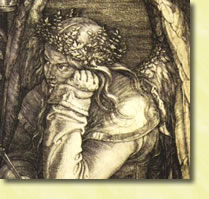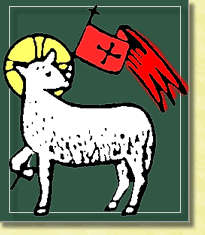 “Is the LORD among us or not?” That is the question that the people of Israel asked Moses, according to this morning’s Old Testament reading. The God of Moses had delivered the Israelites from bondage in Egypt; he had rescued them from the hotly pursuing armies of Pharoah as they crossed the Red Sea; he then entered into a legal contract with them at Mount Sinai, a contract in which God promised the people that if they would keep his commandments, he would take care of them. That is the background to this morning’s reading from the Book of Exodus. But between the rescue at the Red Sea and the Sinai story are sandwiched a series of other stories that are almost comical if you read them one right after another, and this morning’s story is one of them. The first thing that happens is that the water tastes bad, so the people complain. Moses calls on God, and God fixes the water. Then there is nothing to eat. So the people complain again: “In Egypt, we were slaves, but at least we had three square meals a day.” So that night, a huge flock of quails arrive, and everyone has poultry for dinner. In the morning, God provides a special kind of bread, called manna, and he provides it every morning in the desert for the next forty years. So the people never go hungry again.
“Is the LORD among us or not?” That is the question that the people of Israel asked Moses, according to this morning’s Old Testament reading. The God of Moses had delivered the Israelites from bondage in Egypt; he had rescued them from the hotly pursuing armies of Pharoah as they crossed the Red Sea; he then entered into a legal contract with them at Mount Sinai, a contract in which God promised the people that if they would keep his commandments, he would take care of them. That is the background to this morning’s reading from the Book of Exodus. But between the rescue at the Red Sea and the Sinai story are sandwiched a series of other stories that are almost comical if you read them one right after another, and this morning’s story is one of them. The first thing that happens is that the water tastes bad, so the people complain. Moses calls on God, and God fixes the water. Then there is nothing to eat. So the people complain again: “In Egypt, we were slaves, but at least we had three square meals a day.” So that night, a huge flock of quails arrive, and everyone has poultry for dinner. In the morning, God provides a special kind of bread, called manna, and he provides it every morning in the desert for the next forty years. So the people never go hungry again.
Then comes this morning’s story, and we know what is going to happen. The Israelites move to a new camp, there is no water, and the people complain: “Did you bring us here so that we and our children and our cattle could die of thirst?” Moses prays to the LORD, Moses strikes a rock with his rod, and God gives the people water. It is not too difficult too appreciate the perspective that the Psalmist provides in those last few verses from the Venite that we do not usually read: “Harden not your hearts, as your ancestors did in the wilderness. . . forty years long I detested that generation . . .” I do not have God’s patience, but before I came to teach at Trinity, one of the many jobs I worked at was IT support. The first question I always asked was “Did you check to make sure it’s plugged in?” We had a special term for a certain kind of problem – a PEBKAC. PEBKAC stood for: Problem Exists Between Keyboard and Chair. I can appreciate a perspective that asks: “When will these people ever learn?”
On the other hand, the concerns of the people of Israel are not unlike our own, and one can appreciate their dilemma. After all, if a God can not at least provide the basic necessities of life for one’s children and one’s cattle, then what good is he? Where is he? (more…)











